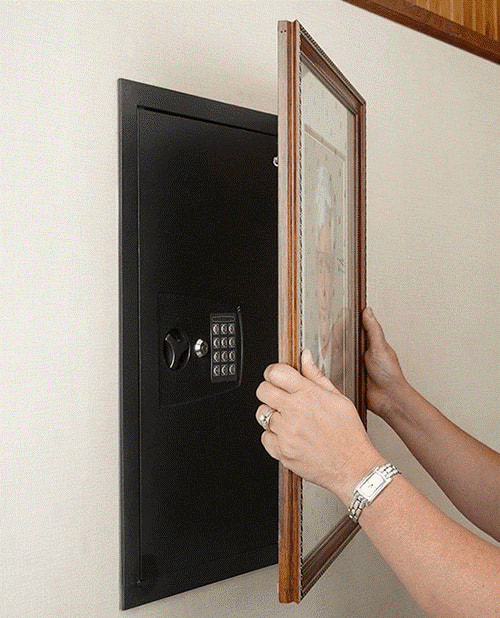
When it comes to protecting valuables, the right installation is just as important as the safe itself. Whether you’re securing firearms, important documents, or personal collections, wall and floor safes offer reliable protection—if they’re properly installed.
But not every contractor or handyman is qualified to do the job. That’s why it’s important to search for a safe and vault specialist near me who understands the full scope of security, structural integrity, and fire protection.
If you’re considering adding a wall or floor safe to your property, here’s what you can expect from a true specialist—and what makes a quality installation worth the investment.
Why Wall and Floor Safes Require Expert Installation
Wall and floor safes are different from traditional freestanding models. They’re designed to be hidden, tamper-resistant, and often permanently secured into structural components.
Improper installation can lead to:
Reduced fire or burglary resistance
Alignment issues with locking mechanisms
Weak points around drywall or concrete
Voided warranties from manufacturers
A safe and vault specialist near me ensures everything is done to code—without compromising safety or usability.
Step-by-Step: What a Specialist Will Do
1. Site Inspection and Evaluation
First, the specialist will inspect your location to evaluate structural conditions. For wall safes, this includes checking stud spacing, wiring, and drywall thickness. For floor safes, they’ll inspect subfloor materials, concrete depth, and drainage.
They’ll ask:
What will the safe be used for?
What’s your daily access routine?
Do you need fire protection or waterproofing?
This helps match the right type of safe and installation method to your specific needs.
2. Safe Selection Based on Security Goals
Not all safes are created equal. A true professional will recommend a model that fits your space, threat level, and budget.
Common recommendations include:
American Security Safes for heavy-duty burglary resistance
Gardall for fire-rated wall safes
Hollon Safe for in-floor designs
Cannon Security Products for mid-size family safes
Kay Nine Safes for specialty needs or gun storage
They’ll explain the pros and cons of each based on how you plan to use the safe.
3. Wall and Floor Modifications
This is where experience counts. A general contractor may know how to cut drywall—but only a vault specialist knows how to reinforce it.
What a specialist might do:
Cut and reinforce wall studs with steel brackets
Saw through concrete and installed floor bolts
Seal entry points against moisture intrusion
Align the door frame perfectly for smooth operation
They’ll also prepare the space with care—no guesswork, no shortcuts.
4. Precise Safe Placement and Anchoring
Placing a safe is about more than just fitting it into a wall or floor.
Here’s what happens:
The safe is leveled to prevent wear on locking bolts
Anchor holes are drilled cleanly—avoiding wires or plumbing
Bolts are tightened to manufacturer torque specs
Sealants or padding are applied (if needed for fire or moisture barriers)
With floor safes, concrete may be re-poured to lock the unit permanently in place. That’s the kind of durability you can’t get with DIY.
5. Testing the Lock and Door Mechanism
Once installed, the lock system must be tested under real conditions. That means opening and closing the safe multiple times with the door empty and loaded.
This step ensures:
Lock alignment is smooth
Bolts engage fully
Electronic locks respond accurately
Biometric or keypad systems have power backup
If anything seems off, the specialist adjusts it on the spot.
What Makes a Specialist Different?
Many handymen can “install” a safe. But only a trained safe and vault specialist near me has the tools, knowledge, and manufacturer training to do it correctly.
They bring:
Experience with wall and floor safes from all major brands
Access to hidden installation hardware and anchor kits
Knowledge of burglary ratings and fire standards
Understanding of how to blend safes into finished spaces
Plus, they can service the safe in the future—making combination changes, updating keypads, or repairing worn parts.
Red Flags to Watch Out For
Don’t trust just anyone with your security installation. Be cautious if:
They can’t name the safe brand they’re working with
They don’t inspect the structure before quoting
They skip steps like fire sealing or bolt testing
They don’t offer support after the install
Always choose someone who understands both the security and structural sides of the installation.
When and Why to Install Wall or Floor Safes
If you’re unsure whether a hidden safe is right for you, here are some common reasons homeowners make the switch:
To protect firearms in rental properties
To store legal documents or titles in a fire-rated safe
To hide valuables discreetly in a bedroom, closet, or garage
To reduce visibility and avoid drawing attention to high-value items
Wall and floor safes are perfect when space is limited but security is non-negotiable.
Final Thoughts: Trust Professionals with Your Protection
A safe is an investment. But a poor installation can wipe out its benefits—fast. When you work with a certified safe and vault specialist near me, you’re not just getting a box in the wall. You’re getting peace of mind.
They know how to install, conceal, and secure your unit so it performs flawlessly—year after year.
East TN Safe & Door Dr specializes in hidden safe installations that match the strength of your security goals. Whether you’re planning for new construction or retrofitting an older space, our team ensures your wall and floor safes are set up for long-term protection.


